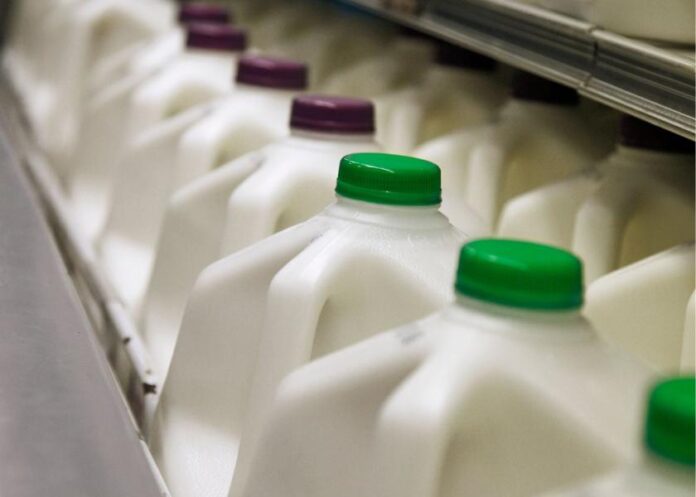HPAI Fails to Impact Dairy Prices So Far – Why Markets Could Actually See Some Growth in the Near Future
The unfortunate discovery of highly pathogenic avian flu (HPAI) in dairy cattle has impacted those herds that have been infected with the loss of milk production for a period. Fortunately, cows have not had to be slaughtered or herds liquidated, but it is a concern for the dairy industry. It also poses no concern for consumers as pasteurization inactivates the bacteria in the commercial milk supply. It is uncertain whether this could become a greater issue as time progresses reducing overall milk production to some degree. HPAI has been confirmed in dairy herds in Michigan, Texas, Kansas, and Idaho with some presumptive positive test results received from a herd in New Mexico. This will require efforts on the part of dairy farms to improve biosecurity measures to avoid this virus.
So far, it has not had an impact on milk futures or the underlying cash prices. Since it was discovered and diagnosed, cheese prices on the spot market have declined, which has put pressure on Class III milk futures sending nearby months to new contract lows. Spring flush is taking place with milk production improving weekly. Demand remains steady leaving sufficient supply for demand. Spot milk in the country varies in price with some noted as much as $6.00 below class. Most of the available spot milk ranged from $3.50 under to even with the class price. This is a good indicator to use for seeing whether supply is tightening.
The milk production report for February showed a decrease in milk production as anticipated, but the increase in cow numbers from January was a surprise. Cow numbers increased by 8,000 head from January for the top 24 states totaling 8.878 million head, down 61,000 head from February 2023. U. S. Cow numbers totaled 9.330 million head, down 89,000 head from a year ago, but up 10,000 head from January. It was anticipated cow numbers would fall as low milk prices continued. It would initially seem that there had been a substantial miscalculation of cow numbers in January. However, USDA revised cow numbers 3,000 head lower in to top 24 states and 5,000 head lower in the U.S. from what was initially recorded last month. Cow numbers in the top 24 states in January declined by 24,000 head from December with U. S. cow numbers 28,000 head from December after the revisions were made to the report. That makes the increase in cow numbers even more impressive for February. Nevertheless, the chart puts the trend of declining cow numbers in perspective and continued low milk prices may keep this trend intact. The continued tightening of replacement heifers will also have an impact on cow numbers and the ability of farms to keep stalls full or to expand the operation.
There seem to be some positive things taking place in the market that may eventually provide support to prices, but it does not seem that prices are ready to move higher. They may not move higher over the next few months unless there is better international and domestic demand or a further tightening of the milk supply. It could be both as the year progresses. In the near term, prices may remain choppy as buyers of dairy products see no reason to become concerned over supply.
Robin Schmahl is a commodity broker with AgDairy, the dairy division of John Stewart & Associates Inc. (JSA). JSA is a full-service commodity brokerage firm based out of St. Joseph, MO. Robin’s office is located in Elkhart Lake, Wisconsin. Robin may be reached at 877-256-3253 or through the website www.agdairy.com.
The thoughts expressed and the basic data from which they are drawn are believed to be reliable but cannot be guaranteed. Any opinions expressed herein are subject to change without notice. Hypothetical or simulated performance results have certain inherent limitations. Simulated results do not represent actual trading. Simulated trading programs are subject to the benefit of hindsight. No representation is being made that any account will or is likely to achieve profits or losses similar to those shown. There is risk of loss in trading commodity futures and options on futures. It may not be suitable for everyone. This material has been prepared by an employee or agent of JSA and is in the nature of a solicitation. By accepting this communication, you acknowledge and agree that you are not, and will not rely solely on this communication for making trading decisions.
SOURCE- https://www.dairyherd.com/markets/milk-prices/hpai-fails-impact-dairy-prices-so-far-why-markets-could-actually-see-some?fbclid=IwAR3JLfpOT0ImLHfvqZp23JqP_h2eozdbTFtsdFMY4TCcPxVu8_mEnEi7Frg_aem_ASE9C1vIec90t90jTzNOLiE1xrluBf7P1v_TF_x494gqxLj43OepOhbz9WZaCHD9ZftZ3964Ql2Dp6x219sIkOFu


